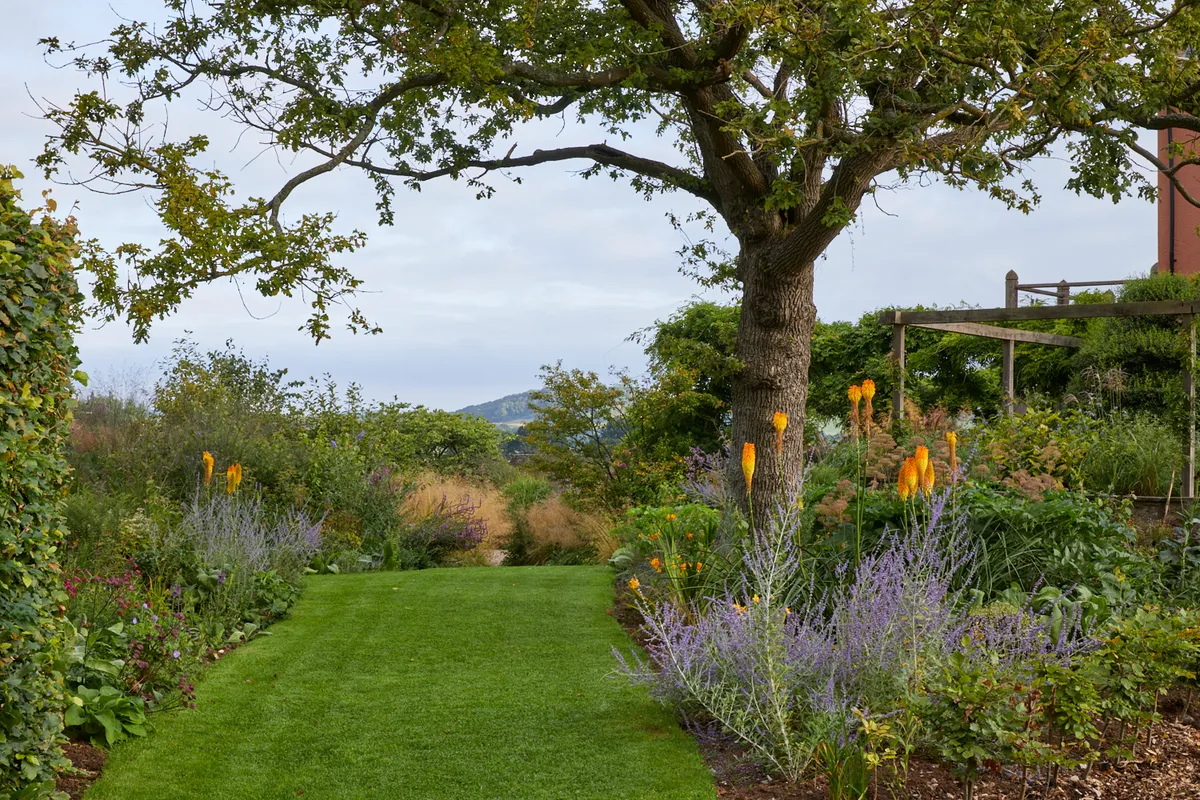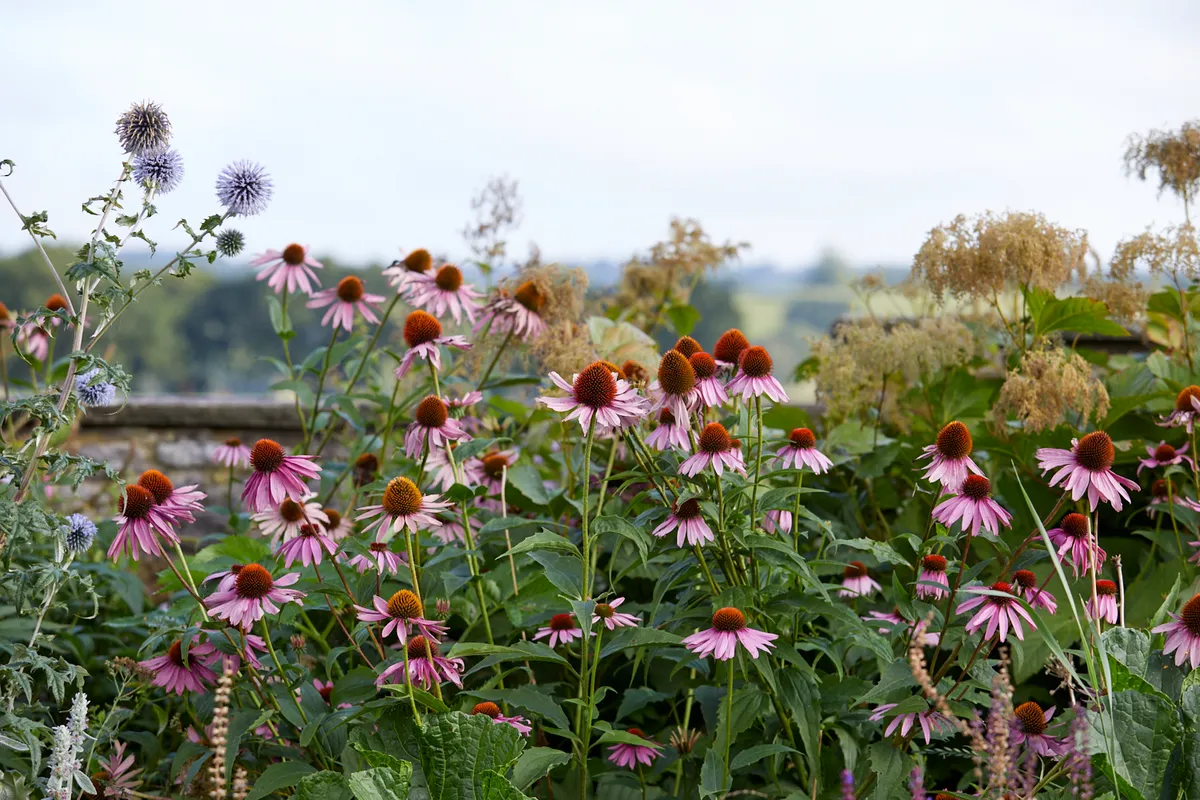At Yeo Valley Organic Garden (and farm), we’re proudly organic – it’s how we grow, how we garden, and how we look after the land. But you don’t have to overhaul everything to garden in a greener way. A few simple changes can go a long way towards working with nature, not against it. From a well-tended compost heap to pollinator-friendly planting – it all starts with small steps that make a big difference.
We’ll be sharing plenty of practical, nature-friendly tips at the Yeo Valley Organic Garden Festival in Somerset this September 18th–20th, a three-day celebration packed with talks, panels and workshops from some of gardening’s most inspiring voices. Come along and dig into down-to-earth ideas you can take home and try for yourself!
Top Tips From Yeo Valley on going organic in your garden
Mow less
If you only do one thing in your garden to support wildlife, cut your grass less – or not at all. Our climate is perfectly suited to let lawns, and the many brilliant wild plants that live in them, thrive. According to Plantlife, the conservation charity behind No Mow May, frequent mowing deprives pollinators of a vital food source. Letting your lawn grow freely for just one month can provide ten times more nectar for bees and butterflies than a regularly cut patch. So, save your mower for paths or picnic spots and let your lawn do its wild thing next season.

This simple shift with big rewards is exactly the kind of thinking that garden designer and BBC presenter Arit Anderson will be exploring in her talk on Thursday 18th September at the Yeo Valley Organic Garden Festival. Focused on gardening with biodiversity and climate change in mind, Arit will open the Festival with practical, down-to-earth ideas for creating future-friendly gardens that work with nature, not against it.
Here's more tips on easy lawn care
Water wisely
A little water wisdom in our gardens can go a long way. Catch the rain with water butts or troughs near thirsty spots like veg beds and greenhouses. Water early or late when it’s cool, and mulch generously with compost or bark to lock in moisture and keep the soil happy. Pick drought-tolerant heroes like lavender, nepeta and erigeron – they are tough plants, low-maintenance and pollinator-friendly too.

For even more clever ways to make every drop count, RHS Gold Medallist Tom Massey will be sharing smart, sustainable ideas from his latest book RHS Waterwise Garden on Saturday 20th September – day three of the Yeo Valley Organic Garden Festival.
Let nature do its thing
One of the simplest (and most satisfying) things you can do in an organic garden is to just take a step back. A garden pest is a delicious snack for someone higher up the food chain, so hold off on the bug sprays. You’ll be creating space for natural predators to thrive and for pollinators to keep buzzing happily.

We’ve learnt that working with nature often means doing less, not more. It’s about creating balance, not chasing perfection, and letting the garden find its own rhythm. It’s an approach that Gardeners’ World favourite Frances Tophill champions in spades. In her Saturday session at the Festival – There’s No Right or Wrong in the Garden – she’ll show how embracing a looser, more playful approach to gardening can help us all grow with a bit more confidence, curiosity and calm.
Grow pollinator-friendly plants
The more pollinators you welcome, the more life your garden will hold – and it all starts with planting the right blooms. Try echinacea, verbena bonariensis, monarda and asters – all nectar-rich, drought-tolerant favourites that offer a pollen-packed feast for butterflies, bees, hoverflies and more. Many are vase-worthy too, bringing both beauty and biodiversity into your home and garden. Plant in clumps and mix flower shapes to create a pollinator buffet from spring through to autumn.

At the Festival on Friday 19th September, themed People & Pollinators, we’ll be diving deeper with two unmissable sessions. Dr Daniel Robert & Dr Heather Whitney from the University of Bristol will explore the science of pollination – how insects navigate gardens, what they’re drawn to, and why your plant choices matter. Georgie Newbery of Common Farm Flowers will share her tips in Release Your Inner Sustainable Garden Florist, showing us how to grow beautiful, pollinator-friendly cut flowers at home.
Give your soil a break
Every time you plunge a fork or spade into the earth, you disturb a hidden world of microbes, fungi and tiny life forms quietly doing their bit to lock in carbon and keep your garden thriving. That underground ecosystem is key to healthy plants and a healthier planet.
Charles Dowding, the UK’s no-dig gardening guru, will be closing the Festival this September with his tried-and-tested tips for soil-friendly growing. His session will show you how to boost your beds, nourish your soil and grow more with less effort – all without lifting a spade.
And if you’re keen to get compost confident, the team from Garden Organic will be sharing tips on all things related from their ‘Compost Corner’ throughout the Festival. Dig deep into the muddy stuff with the people who know it best!
For more tips on attracting wildlife into the garden, take a look at our guide.




